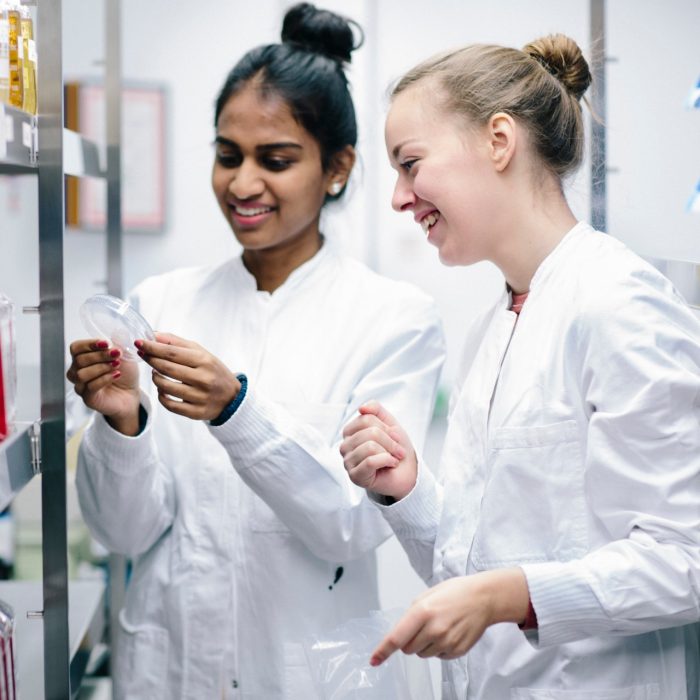Microbiology

Study the smallest forms of life
Microbiology is the scientific study of the smallest forms of life - bacteria, viruses, archaea, fungi and protozoa. These fascinating microorganisms impact on our lives every day and in many different ways. They are of great benefit to us; they turn the biological wheels on earth and are responsible for the sustainability of all life. They turn over nutrients and elements on a global scale, and they are the main producers of carbon and biomass.
Our environment is dependent on microorganisms through recycling of organic wastes, the maintenance of soil fertility and biodegradation of pollutants, to name just a few. The products of microbial action provide us with many foodstuffs, beverages, pharmaceuticals and other products of biotechnology. On the negative side, bacteria, viruses, fungi and protozoa can cause disease in humans, animals and plants. Rising antimicrobial resistance is one of the top global public health threats facing humanity. Microorganisms can lead to crop destruction, food spoilage and water contamination. The genetic engineering of microorganisms is a fundamental aspect of molecular biology and the way of the future, through biotechnology and synthetic biology.
Apply transferable skills to a range of careers
Studying microbiology builds microbiology skills as well as transferable skills in data analysis, numeracy and problem solving to prepare you for a range of careers. You could pursue a career as microbiologist, food scientist, medical technologist, biotechnologist or environmental scientist.
Our programs
-
You can study microbiology in the following undergraduate degrees:
-
Gain research experience and enhance your career prospects with an honours degree. These programs are designed to connect your undergraduate study with supervised independent research. An honours degree also provides a pathway into further study, such as a Masters by Research or PhD. You can take honours as a standalone degree or as part of an embedded honours program.
Embedded honours program
Standalone honours program
Honours in the School of Biotechnology and Biomolecular Sciences (BABS)
BABS offers honours programs in the following areas:
- microbiology and microbiomes
- genomics and bioinformatics
- molecular and cell biology
-
You can study microbiology in the following postgraduate research degrees:
